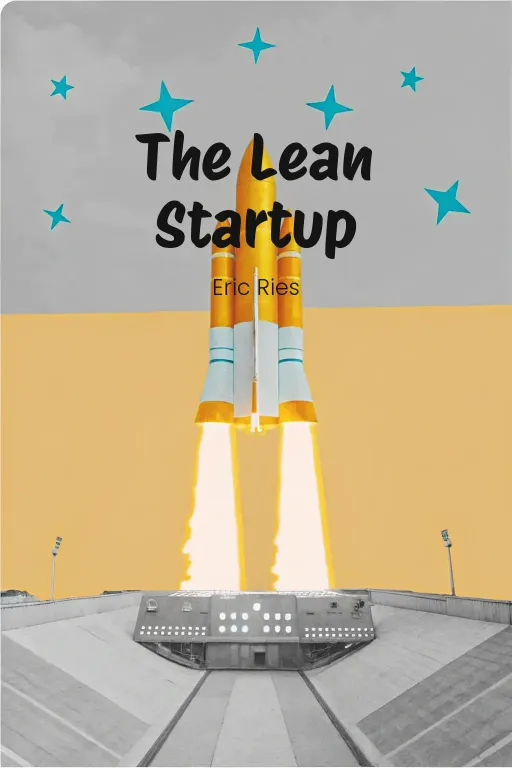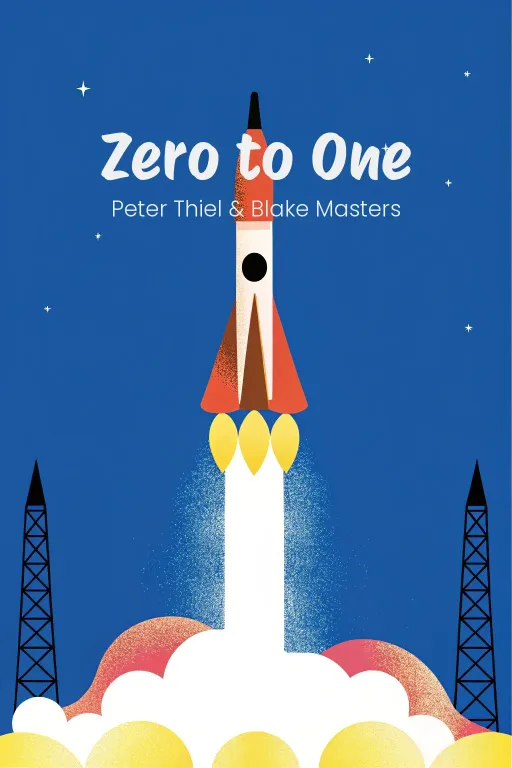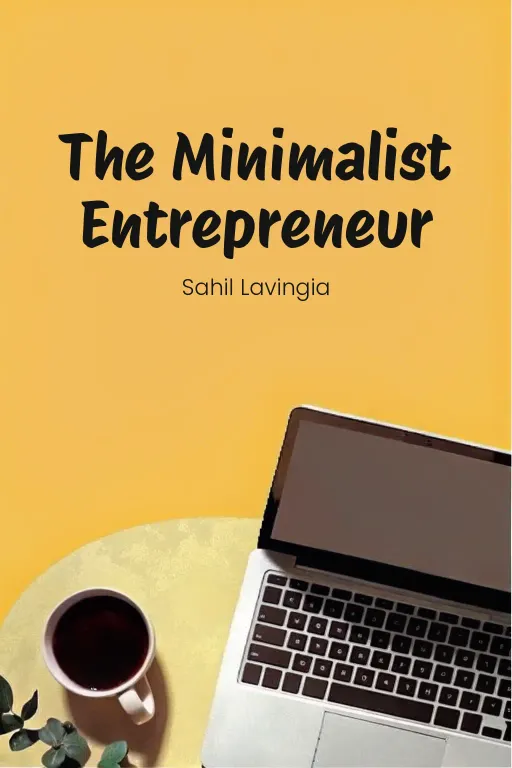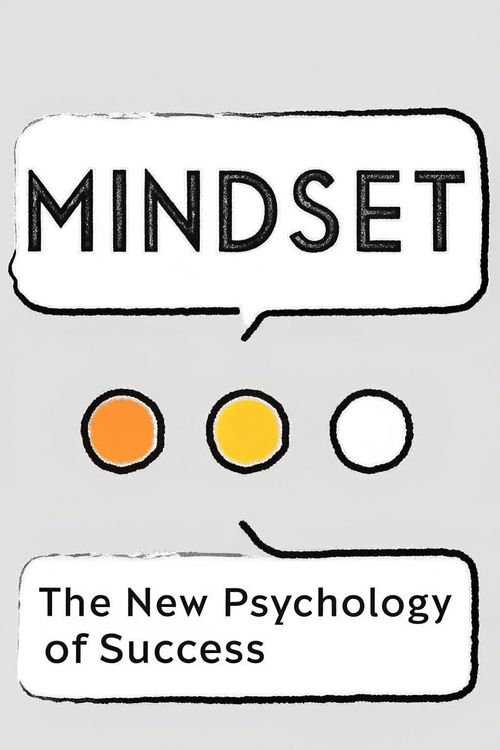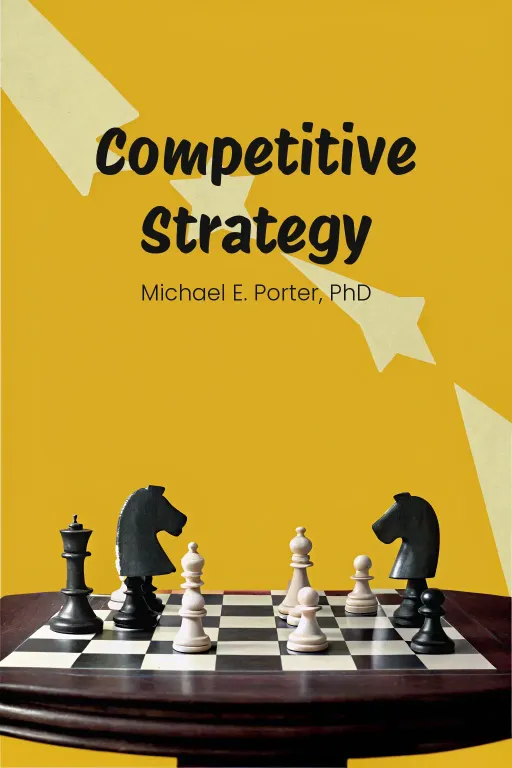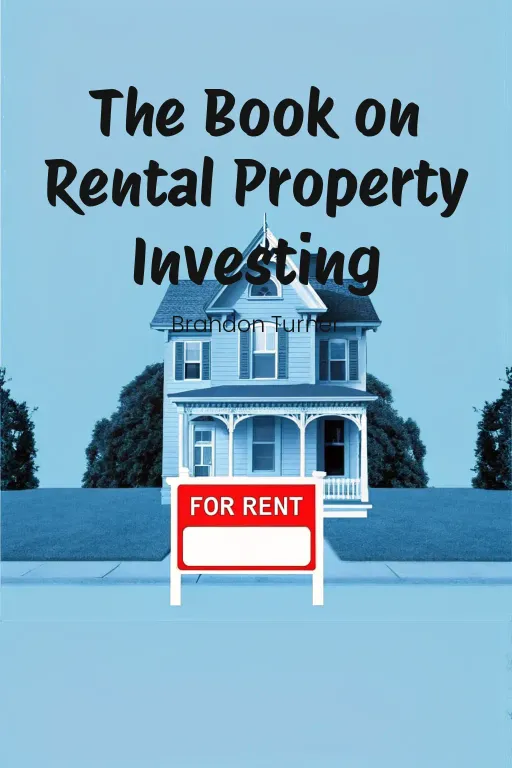
Build Your Tribe: Lasting Business, Real Impact
Podcast by Let's Talk Money with Sophia and Daniel
How Great Founders Do More with Less
Build Your Tribe: Lasting Business, Real Impact
Part 1
Daniel: Hey everyone, welcome back to the show! Sophia, let me ask you something: when you picture entrepreneurship, what's the first thing that pops into your head? Is it like, those crazy launch parties, hockey-stick growth graphs, and dreaming of private jets down the line? Sophia: Or, you know, is it more like endless sleepless nights, constantly chasing funding, with stress levels that rival a contestant on a cooking competition under pressure? Daniel: Either way, it probably feels super chaotic and exhausting, right? Well, here's the thing, what if we told you there's actually a simpler, maybe even a more “meaningful” way to build a business? That's exactly what Sahil Lavingia's The Minimalist Entrepreneur is all about. Sophia: Right, Lavingia basically flips the whole Silicon Valley playbook on its head. He's advocating that we ditch those unicorn dreams and stop obsessing over hyper-growth. Instead, he wants us to focus on building sustainable, community-driven businesses that solve real problems. No frills, no drama. I’m in. Daniel: Exactly. And he actually lays out a roadmap for how to do it! Start small, really engage with your community, and grow slowly but intentionally. It’s less about how fast you scale and more about creating something that truly lasts, you know? Sophia: Okay, so how do we break this down for everyone today? Daniel: We’re going to dive into three big ideas. First, we can learn to build a business around community – I'm talking nurturing relationships, so the business grows organically. Sophia: Sounds idyllic, but gardens take time and patience. Are we sure entrepreneurs have time for that? What's step two? Daniel: Growing with intention. And we’ll talk about avoiding burnout and really prioritizing purposeful progress instead of racing toward growth that just isn't sustainable, frankly. Sophia: Okay, I see a theme emerging: slow and steady wins the race, eh? So, what’s the final piece of this minimalist puzzle? Daniel: Crafting a legacy of authenticity. It’s about being so true to your mission that your customers don’t just buy from you, they become advocates for you! Sophia: So, we’re essentially talking about how to build a business that feels more like a passion project and… less like a caffeine-fueled sprint to the finish line? Daniel: Precisely! Let’s dive into this really game-changing approach to entrepreneurship and see how it can totally reshape the way we think about success.
Community-First Approach
Part 2
Daniel: Okay, Sophia, so let's dive right into what really makes Lavingia's philosophy tick: the Community-First Approach. Basically, it's all about getting involved in a community, really understanding what people need before you even think about building anything. It's totally the opposite of that “build it and they will come” thing that entrepreneurs hear all the time. Sophia: Exactly! It's about flipping the whole script. Less about dreaming up some big business plan in your own little world, and more about actually being part of things. But hold on, Daniel. “Community-first” sounds great, but is it actually realistic? How does someone avoid just, you know, hanging around without actually getting anything done? Daniel: That's a really important point. It's not just chit-chat; it's about actively listening and really participating. You're not just watching from the sidelines. You're building trust by actually contributing to the community. Think about Sol Orwell and Kurtis Frank with Examine.com, a great example of this. Sophia: Right, the Reddit guys. Remind us about their community story. Like, where did they even begin? Daniel: So, Sol started because he was struggling with his own weight loss. He went to r/Fitness on Reddit, makes sense, right? A community that was already focused on health and fitness. But he didn't just show up to sell something. He became a real member of the community, answering questions, providing helpful insights, and eventually racking up over 100,000 karma points. Sophia: Wow, that's commitment. So how did he go from giving advice to creating Examine.com, this incredibly informative platform? Daniel: It's interesting, while he was active on Reddit, he noticed the same question kept popping up: people had trouble finding reliable, science-backed information about supplements. Sound familiar? Most of the advice out there was either incomplete or just not trustworthy. He realized this was a shared frustration within the community. This clear need became the foundation for Examine.com. And get this, Sophia, when they launched their first product, the Research Digest, they sold 3,000 copies just through word of mouth. Sophia: Impressive. Did they avoid the usual annoying ad campaigns or those endless self-promotion threads on Twitter? Daniel: Precisely. That was all because of years of contributing, listening, and building trust. The community saw Sol as one of them, not some outsider just trying to make a quick buck, That's the power of being authentic. Sophia: Okay, I need to play devil's advocate here. Isn't Examine.com a bit of an exception? Does every community offer these kinds of opportunities, or do you think there's a bit of luck involved? Daniel: There's always some element of timing and alignment, sure. But the core idea is solid. If you spend the time to understand people's problems and create genuine relationships, you're way more likely to discover real opportunities. While you can't control everything, you can definitely improve your chances by focusing on listening instead of making assumptions. Sophia: And I'm guessing that this "listening" is more than just browsing Reddit while you have your coffee. There's a skill to it, isn't there? Daniel: Absolutely. Lavingia calls it "active listening." It's about going beyond the surface. It's really digging into what community members say, looking for patterns, and really asking questions. This means actually going to meetups, forums, or chats, and trying to build trust doing it. Think about Sahil himself with Gumroad. Sophia: Ah yes, his turnaround story is pretty interesting. Tell us again about how engaging with the community changed Gumroad. Daniel: Originally, Gumroad had these big Silicon Valley dreams – scaling rapidly, getting funding, growth at all costs. But after a bit of a reality check, Sahil changed direction. Instead of focusing on what investors wanted, he started listening to the creators Gumroad was supposed to support. He asked them questions, got their feedback, and started creating solutions with them. It wasn't about what he thought they needed, but about what they told him they needed. Sophia: That’s quite a shift in mindset. Seems to contradict the idea that entrepreneurs are these visionary geniuses who know what people want before they do. Instead, it’s about building alongside the people you're trying to serve. Daniel: Exactly. When you align with a community's needs, you're not just proving your business idea. You're actually building it with your audience. It's a two-way street that creates stronger, more loyal relationships. Sophia: Sounds great. But let's be practical. If you're a brand-new entrepreneur, and you're looking at all these possible communities, where do you even begin? Daniel: Lavingia says to start with communities you already feel drawn to, where you already have some interest or connection. Ask yourself, "Who do I connect with? Where can I add something just by being myself?" And then, see how you can truly participate. Share ideas, help solve problems, and build trust over time. Sophia: But we can't forget about the patience part, Daniel. Let's be honest, most people want results now. So, spending months just, you know, participating in community discussions might not be the instant gratification they're looking for. Daniel: You're right. But that's where the community-first approach is different from other business strategies. It's not about quick wins, so to speak. It's about planting seeds. You take care of those relationships, and the benefits come through trust and organic growth over time. Look at how Examine.com grew. It doesn't happen overnight, but it's a lot more solid in the long run. Sophia: Okay, so we've got patience, authenticity, and active listening covered. Now, how about contributing? If I'm jumping into a community, how do I make sure I'm adding value instead of just being that person who's always around? Daniel: You can add value by helping solve problems, sharing things you know, or even teaching others something. The point is to show up regularly and be helpful without being pushy. Show that you're serious, but don't try to take over the whole space. Sophia: Build your credibility without being that one person in a meeting who just talks to hear themselves talk. Got it. Daniel: Exactly! And after you've established that trust, that is the time for surveying and testing. Logically, it makes sense to take what you've learned from really listening and use surveys or informal chats to make sure that the needs you're seeing are actually there. Sophia: So, each step builds on the one before: engage, listen, contribute, test. And only then do you start figuring out your solution. That kind of thoughtfulness might be a relief to entrepreneurs who are overwhelmed by the usual “go big or go home” mentality. Daniel: Absolutely. It respects the community, builds trust, and helps you find problems actually worth solving. Sophia: Okay, Daniel, I have to admit. I'm starting to like this community-first thing. It's not flashy, but maybe that's the point. It might actually be sustainable. I think that's a message a lot of entrepreneurs need to hear.
Mindful and Sustainable Growth
Part 3
Daniel: Exactly! By nurturing trust within a community, entrepreneurs naturally find opportunities to create valuable solutions. And that brings us to today's topic: “Mindful and Sustainable Growth”. Think of it as a practical guide for taking those community insights and turning them into a sustainable, value-driven business. It builds on the idea of putting the community first by offering concrete steps for responsible growth, guiding you from initial ideas to actually making things happen. Sophia: Right, so this is about going beyond just tossing ideas around online to actually building something real. And doing it in a way that doesn't rely on overnight viral fame, which, let's be honest, sounds almost impossible. Daniel: It's definitely a different way of thinking, one focused on intention. Minimalist entrepreneurs are all about creating businesses that don't blindly chase rapid, unsustainable growth. Instead, they prioritize being profitable, growing ethically, and building something that lasts. Sophia: Okay, I'm intrigued. So, where do we even begin? What's the very first thing you should do when you're ready to move from just having ideas to taking action? Daniel: You've got to validate your idea, and that starts with creating an MVP, or Minimum Viable Product. The goal is to strip away all the unnecessary extras and really test the core functionality of your idea with actual users. Focus on solving one specific problem really well, rather than trying to do everything at once. Sophia: Ah, so it's like the business version of "keep it simple"—just make a sandwich, don't try to cook a gourmet meal on your first try. Makes sense. But how do you even figure out what your MVP should look like without making it too basic or totally missing the mark? Daniel: You've got to focus on the essentials. Take Gumroad, for instance. When Sahil Lavingia started, it wasn't some fancy tool with a million features. It was simply a way for creators to upload files, share them easily, and get paid. That's it. No fancy interface, no complicated integrations – just a straightforward solution to a clear problem. Sophia: Right, the simplicity worked. Gumroad found its footing by doing one thing really well, instead of trying to do too much at once. Daniel, how do you stop someone from launching an MVP that's “too” minimal? You don't want users thinking, "Why am I even wasting my time with this?" Daniel: That’s where testing and iterating comes in. MVPs aren’t meant to be perfect; they’re for learning. You launch something functional enough to solve a real issue, get feedback from your community, and expand gradually based on what they need, not what you think they'll want. Sophia: And Gumroad is a great example of that, isn’t it? Didn’t they constantly tweak their platform based on user feedback? Daniel: Absolutely. Every feature Gumroad added—like subscription options or analytics—came directly from creators telling Sahil what would help them most. And that's the key difference between mindful growth and the traditional growth-at-all-costs approach. Traditional startups often overbuild, assuming they know what the market wants, whereas mindful entrepreneurs let the market guide them. Sophia: Okay, fair enough. But playing devil's advocate here, let's talk about scalability. Solving one problem is great, but isn’t there a risk of locking yourself into a niche so small that you can't expand beyond it? Daniel: Scalability is something to consider, absolutely, but it shouldn't be your starting point. Mindful entrepreneurs prove their idea works on a small scale first. Then they grow slowly and intentionally, building on a solid foundation rather than stretching themselves too thin. Look at Simply Eloped. They catered to couples who wanted simple, intimate weddings, essentially rejecting the huge, expensive wedding industry. Sophia: I think I remember their story. Didn’t they hit some growth roadblocks pretty early on? Daniel: They did! Their growth outstripped their capacity to maintain their original, cohesive vision. It strained their resources, creating chaos and diluting their core mission. But here's what they did right—they paused, reevaluated, and scaled back. They refocused on connecting people through authentic and intimate weddings. Instead of chasing numbers, they chased purpose. Sophia: That’s kind of counterintuitive, isn’t it? Most entrepreneurs would see growth pains as a reason to push even harder, not slow down. It takes courage to hit the brakes. Daniel: Absolutely. But it's a perfect example of mindful growth—prioritizing sustainability and long-term impact over quick wins. This also explains why cost efficiency is so vital to this strategy. Sophia: Ah, now we’re getting into the business side of things. Let me guess: no office ping-pong tables or "free kombucha on tap" expenses here? Daniel: Pretty much! Mindful entrepreneurs are resourceful with what they have. Take the Missouri Star Quilt Company. The founders, Jenny and Al Doan, literally renovated their first workspace themselves to cut costs. They were careful about tracking expenses and only expanded their team when absolutely needed. Every decision was based on sustainability. Sophia: Okay, but let’s talk about employee well-being. Cutting costs is important, but you don't want to run your staff into the ground. That's just trading one kind of burnout for another, right? Daniel: Exactly! Mindful growth isn't just about pinching pennies—it's about putting resources where they matter most, including investing in your people. Gumroad is a great example. They adopted a remote work structure, focused on communicating effectively without needing to be online at the same time, and let employees set their own schedules. The focus was on results, not hours worked, which created balance and boosted productivity. Sophia: And that probably helped with employee retention, too. Nobody's going to stick around if they feel overworked and underappreciated. Daniel: That's the point! When your team feels supported, respected, and empowered, they're not just more productive – they're “invested” in the success of the business. Happy employees lead to better outcomes for everyone: founders, customers, and the business itself. Sophia: Alright, let me try to sum this up: start small, validate early, grow intentionally, and treat your people well. That is very methodical, yet somehow innovative in a world where everyone’s rushing to scale at all costs. Daniel: Exactly! There’s one more key piece: take an iterative approach to growth. Your typical entrepreneur may rush head-first into massive expansion, but minimalist entrepreneurs, on the other hand, focus on small, measurable wins that build momentum over time. Think steady refinement so you don’t need to make a massive bet all at once. Sophia: I like that. It’s more like climbing a ladder step by step versus trying to use a pole vault—and, you know, possibly face-planting. Do you have any examples? Daniel: Of course. Jelani Memory, the founder of A Kids Book About, took this approach during a pivotal moment. When George Floyd’s death ignited conversations about racism across the country, Jelani already had a book on the issue ready to go because he had already spent time creating something thoughtful and relevant. This created immediate demand. And rather than rushing to capitalize, he scaled intentionally, while staying true to his mission. Sophia: So he wasn't chasing after a popular trend just for profit. Instead, he let his mission guide him. Everything else followed. Daniel: Exactly! And it's a perfect example of why mindful growth isn't just practical—it's principled. When done right, it sets a business up for resilience and long-term success, all while staying connected to its true purpose. Sophia: All right, Daniel, I’ll admit there’s something compelling about this patient, purpose-driven approach. It’s like the tortoise proving that it’s okay to slow down in a world obsessed with speed. Let’s keep exploring these principles because I’m seeing some real-world potential here.
Authenticity and Long-Term Impact
Part 4
Daniel: So, with a validated idea and community backing, the next big thing is crafting a business model that balances ambition with, you know, actually lasting. And Sophia, this really brings us to the final piece of the minimalist entrepreneurship puzzle: focusing on being real and having a long-term positive impact. Sophia: Right, wrapping up with the ultimate goal – making a difference, not just a profit, got it. So, what's the angle here? Are we talking about telling stories, building loyalty, and basically empowering our customers to see themselves as more than just walking wallets? Daniel: Exactly! It's about creating businesses that don't just push products. We're talking about fostering real relationships and having a shared purpose with the people who buy what you're selling. We're going to dive into the power of storytelling, getting your users on your side, sustainability, and really anchoring your business in values that will stick around for the long haul. Let's kick things off with storytelling, right? Sophia: Okay, let's do that. Everyone loves a good story—but really, why's it so important? Aren’t we just talking about good old marketing with a new name? Daniel: Not really, Sophia. With storytelling, it’s not just about the marketing fluff. It’s about being open and making a real connection. Take Sahil Lavingia, with his blog “Reflecting on My Failure to Build a Billion-Dollar Company,” right? He just laid it all out there—his missteps with Gumroad, not meeting investor expectations, scaling too quickly, and the layoffs. Being that honest makes not just him, but the whole company more human. Sophia: Ah, so, being candid about failure… I wouldn't have thought of that as marketing, exactly. But you're saying it actually made a difference for Gumroad? Daniel: It did! By opening up about the tough times, Sahil was basically saying, “Hey, we’re not perfect, and that’s OK.” Creators who read that post saw their own struggles in Gumroad's story—all the rejection, funding headaches, and self-doubt. That honesty builds trust, and that's super valuable. Sophia: I get how that kind of honesty can hit home. Still, aren't you worried about scaring people off if you're too open? What happens when your story starts to sound a bit like you're airing dirty laundry? Daniel: Yeah, that's a fair question, Sophia. It’s not about throwing every single problem out there. The key is framing those challenges—even failures—as learning opportunities. When a company, or its founder, tells relatable stories that include both the wins and the lessons learned, it sets the stage for trust and support. People don't expect perfection, but they do appreciate it when you're open and genuine. Sophia: So, instead of trying to look perfect, you show people your flaws and hope they stick around. Got it. Does this work outside of SaaS companies like Gumroad, though? I'm not sure Patagonia is writing blog posts about quarterly losses. Daniel: True, but they’ve built their entire brand on authenticity. Look at their "Worn Wear" program. They push repairing, reselling, and upcycling Patagonia gear to, you know, make it last longer. Plus, they share customer stories about doing these things to really get their audience involved. Sophia: Right, so Patagonia's basically asking, “Do you want your next jacket with or without holes?” How does that not cut into their sales? Daniel: On the surface, it might seem like it backfires, right? But it actually builds loyalty. Customers don't just see themselves as buyers—they become advocates for a bigger mission. Keeping their values out in front helps Patagonia stay authentic. And the result? People stick with them for years—not just for the products, but because they believe in what the company represents. Sophia: Smart. So, instead of just selling stuff, you're selling a cause. Empathy by design. But, does this only work for brands with these huge missions, like saving the planet? What about a small business, like someone making handmade soap who's working 18-hour days just to stay afloat? Daniel: Yeah, it works for them too. Think about small breweries that get their customers involved when they're creating new beer flavors for anniversaries. The brewery asks people to share and vote on ideas, then they launch the winning beer and celebrate with everyone. Customers feel like they're a part of it because they are! Sophia: So, it’s less about how big you are and more about giving people a sense of ownership. That's pretty clever, actually. It's like letting your customers help write the story, and that pulls them in closer. Daniel: Exactly! It's about building relationships, not just selling a product. These kinds of things turn the normal business-customer thing into something where you respect each other and work together. Sophia: Mutual respect – I like that, Daniel. But, you know me, I’m a bit cynical. What happens when your mission gets in the way? Like, Patagonia pushing "repair, don't replace" might push away customers who just want something new and stylish. Daniel: That's a real concern, but it’s about knowing who you're talking to. Businesses that care about being real and sharing values usually attract customers who feel the same way. Patagonia’s not trying to please every single person—they're focused on building a loyal group who believe in what they're doing. It's not about being popular; it’s about having real, meaningful relationships. Sophia: Focused relationships—and probably fewer refund requests, because these customers are actually invested. Okay, storytelling builds trust, empowerment builds loyalty, and it all makes for a healthier business in the long run. But where does sustainability fit into all this? Daniel: In the minimalist entrepreneurship model, sustainability isn't just about the environment—it means making sure your business can run ethically and last. That might mean getting materials responsibly, cutting down on waste, or even going digital to save money and reduce your carbon footprint. It's about doing what makes sense for everyone: your customers, employees, and the world around you. Sophia: And by stakeholders, I guess you mean that group that most companies forget: the planet? I'm guessing we're bringing Patagonia back into the conversation. Daniel: Totally. Patagonia’s “1% for the Planet” pledge donates 1% of their sales to environmental causes, reinforcing their commitment to sustainability. For small businesses, sustainability might mean using recyclable packaging or just using less energy. It’s not always about these huge things; it’s about doing smaller things consistently that show what you stand for. Sophia: So even small things, like less packaging, can really change what customers think about you. Makes you wonder why more brands don’t do it. Daniel: Well, because real sustainability—like this whole minimalist entrepreneurship thing—takes effort and sacrifice. You know, things that don’t give you instant results. It's about making a legacy, not just hitting your numbers for next quarter. Sophia: You know, we started talking about making MVPs, and now we're practically reinventing capitalism here. Are minimalist entrepreneurs the unsung idealists we need? Daniel: They just might be. By focusing less on how big they can get and more on the impact they can make, they’re changing what success even means. It’s not about being the biggest; it’s about being meaningful, sustainable, and connected. And isn’t that a legacy worth building?
Conclusion
Part 5
Daniel: Okay, Sophia, let's bring this home. Today we dove deep into Sahil Lavingia's minimalist entrepreneurship, which “really” comes down to three game-changing ideas. First is this “Community-First Approach”: it’s about finding your tribe, listening to their needs, contributing, and building that trust before you even think about creating solutions. The key is to solve real problems, not just chase your own assumptions. Sophia: Right. And then we talked about “Mindful and Sustainable Growth”: validating your ideas early with MVPs, scaling intentionally, and keeping an eye on costs without burning out your team. It's not about that crazy hyper-growth, but about finding a pace that allows you to last and stay true to your purpose, right? Daniel: Exactly! And finally, we unpacked “Authenticity and Long-Term Impact”: How being vulnerable, working closely with your customers, and adopting sustainable practices can build deeper connections, real loyalty, and a business that actually stands for something. Sophia: Yeah, it's not the express lane to instant stardom or billion-dollar valuations, but more like a scenic route to building something genuine, something that endures. Whether it's building a community from scratch or scaling back to refocus on your core values, this approach is about pursuing meaningful growth, not just manic expansion. Daniel: So, here’s a challenge to our listeners: think about one area in your life or work where you can just slow down and really focus on connecting with people. Can you listen more carefully to what the people around you actually need? Can you take that one deliberate step toward building trust and offering real value? Sophia: And let’s be honest, businesses don’t need to dominate the globe to make a difference. They just need to make a real, positive impact in the communities they serve, right? That's where the real satisfaction comes from. Daniel: Couldn't agree more, Sophia. So get out there, engage with purpose, grow with intention, and build something truly authentic! Sophia: And hey, who knows? You might just redefine what success means – for yourself, and for your customers, along the way.
